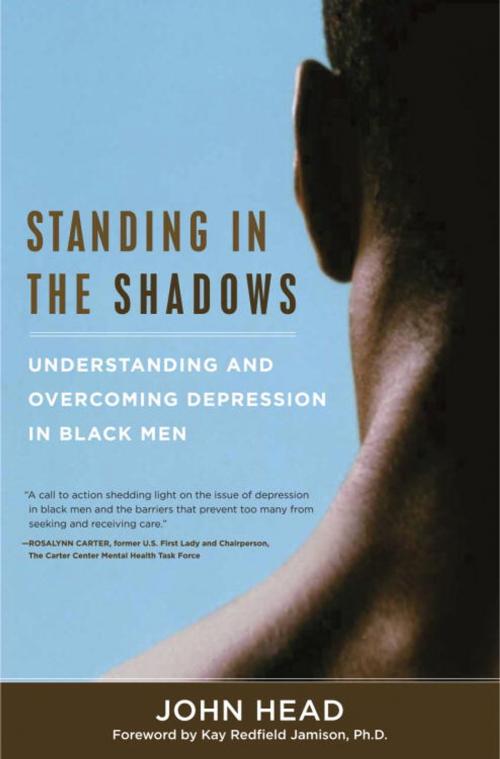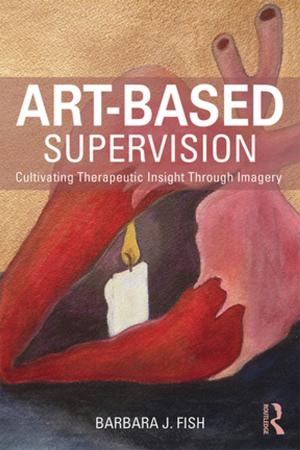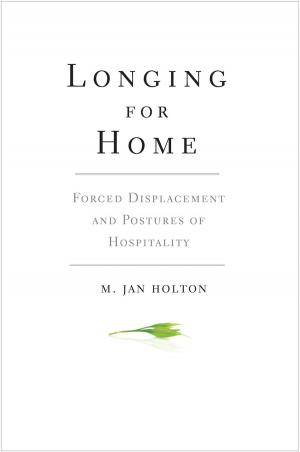Standing In the Shadows
Understanding and Overcoming Depression in Black Men
Nonfiction, Health & Well Being, Self Help, Mental Health, Depression, Social & Cultural Studies, Social Science, Cultural Studies, African-American Studies, Psychology| Author: | John Head | ISBN: | 9780307419309 |
| Publisher: | Potter/Ten Speed/Harmony/Rodale | Publication: | December 18, 2007 |
| Imprint: | Harmony | Language: | English |
| Author: | John Head |
| ISBN: | 9780307419309 |
| Publisher: | Potter/Ten Speed/Harmony/Rodale |
| Publication: | December 18, 2007 |
| Imprint: | Harmony |
| Language: | English |
A first-of-its-kind exploration of black men and depression from an award-winning journalist
The first book to reveal the depths of black men’s buried mental and emotional pain, Standing in the Shadows weaves the author’s story of his twenty-five-year struggle with depression with a cultural analysis of how the illness is perceived in the black community—and why nobody wants to talk about it.In mainstream society depression and mental illness are still somewhat taboo subjects; in the black community they are topics that are almost completely shrouded in secrecy. As a result, millions of black men are suffering in silence or getting treatment only in the most extreme circumstances—in emergency rooms, homeless shelters, and prisons. The neglect of emotional disorders among men in the black community is nothing less than racial suicide. John Head’s explosive work, Standing in the Shadows, addresses what can be done to help those who need it most.In this groundbreaking book, veteran journalist and award-winning author John Head argues that the problem can be traced back to slavery, when it was believed that blacks were unable to feel inner pain because they had no psyche. This myth has damaged generations of African American men and their families and has created a society that blames black men for being violent and aggressive without considering that depression might be a root cause. The author also explores the roles of the black church, the black family, and the changing nature of black women in American culture as a way to understand how the black community may have unwittingly helped push the emotional disorders of African American men further underground. As daring and powerful as Nathan McCall’s Makes Me Wanna Holler, Standing in the Shadows challenges both the African American community and the psychiatric community to end the silent suffering of black men by taking responsibility for a problem that’s been ignored for far too long. Additionally, Standing in the Shadows gives women an understanding of depression that enables them to help black men mend their relationships, their families, and themselves.
A first-of-its-kind exploration of black men and depression from an award-winning journalist
The first book to reveal the depths of black men’s buried mental and emotional pain, Standing in the Shadows weaves the author’s story of his twenty-five-year struggle with depression with a cultural analysis of how the illness is perceived in the black community—and why nobody wants to talk about it.In mainstream society depression and mental illness are still somewhat taboo subjects; in the black community they are topics that are almost completely shrouded in secrecy. As a result, millions of black men are suffering in silence or getting treatment only in the most extreme circumstances—in emergency rooms, homeless shelters, and prisons. The neglect of emotional disorders among men in the black community is nothing less than racial suicide. John Head’s explosive work, Standing in the Shadows, addresses what can be done to help those who need it most.In this groundbreaking book, veteran journalist and award-winning author John Head argues that the problem can be traced back to slavery, when it was believed that blacks were unable to feel inner pain because they had no psyche. This myth has damaged generations of African American men and their families and has created a society that blames black men for being violent and aggressive without considering that depression might be a root cause. The author also explores the roles of the black church, the black family, and the changing nature of black women in American culture as a way to understand how the black community may have unwittingly helped push the emotional disorders of African American men further underground. As daring and powerful as Nathan McCall’s Makes Me Wanna Holler, Standing in the Shadows challenges both the African American community and the psychiatric community to end the silent suffering of black men by taking responsibility for a problem that’s been ignored for far too long. Additionally, Standing in the Shadows gives women an understanding of depression that enables them to help black men mend their relationships, their families, and themselves.















